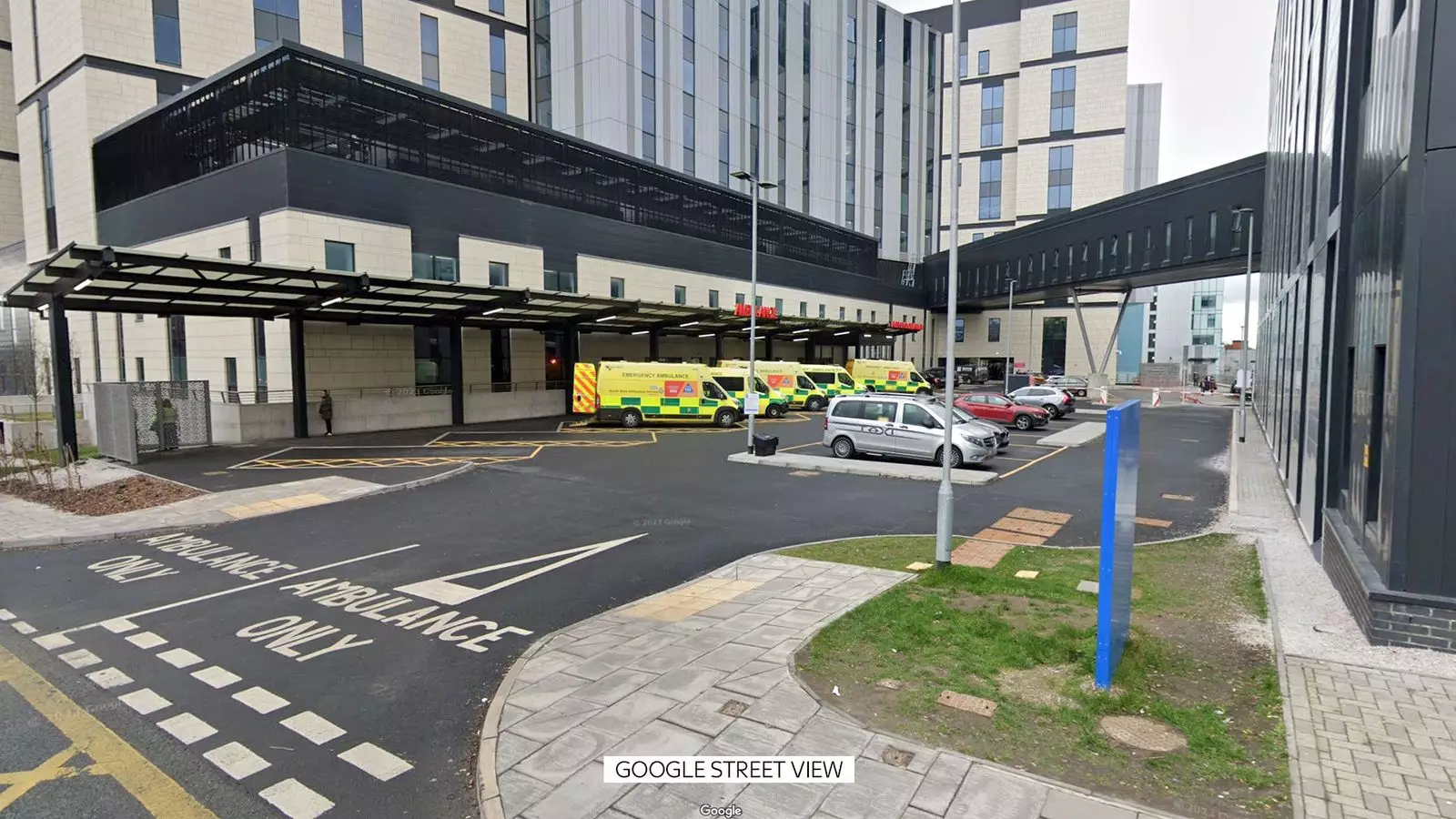The Royal Liverpool University Hospital has recently issued a declaration of a critical incident, attributing this decision to the overwhelming demand for its Accident & Emergency (A&E) services. This situation has been exacerbated by a significant uptick in patients suffering from flu and various respiratory illnesses, as evidenced by data indicating that the flu patient count in hospitals across England has surged fourfold within the past month. This striking increase highlights the ongoing issues that health facilities are grappling with, particularly during periods of seasonal illness.
A spokesperson for the hospital revealed that a detailed and comprehensive action plan has been implemented to navigate these challenging times. This plan aims to manage the influx of patients while ensuring that those who are already admitted can be discharged safely when medically appropriate. However, the declaration of a critical incident is a stark reminder that the hospital, like many others, is not functioning at its usual capacity. Consequently, some patients may experience delays in receiving care, as the hospital is focused on prioritizing the most critically ill individuals. Such operational challenges are becoming increasingly common in healthcare settings nationwide, driven partly by the compounding effects of elevated patient numbers amid a particularly harsh winter.
In light of the ongoing crisis, the hospital is urging individuals whose health concerns do not warrant immediate emergency care to consider alternative options. Individuals are encouraged to reach out to their general practitioners, utilize local pharmacies, or seek assistance at nearby walk-in clinics. Furthermore, the 111 service remains an essential resource for those needing advice on health issues that do not constitute emergencies. This guidance aims to alleviate some pressure off the A&E department while ensuring that individuals receive appropriate care in a timely manner.
The situation at the Royal Liverpool University Hospital is illustrative of a broader trend affecting healthcare facilities across the UK. Similar declarations have been made in other regions, notably the NHS Cornwall and Isles of Scilly Integrated Care Board, which acknowledged an almost fourfold increase in inpatient numbers compared to the previous year. These developments coincide with warnings of a so-called “quad-demic”—a confluence of flu, norovirus, COVID-19, and respiratory syncytial virus (RSV) circulating simultaneously. In response, the NHS has ramped up its vaccination efforts against three out of these four viral threats, aiming to mitigate the impact of these illnesses on healthcare services.
As hospitals like the Royal Liverpool University Hospital navigate these unprecedented challenges, it is crucial for the community to remain vigilant and aware of how they can contribute to reducing the strain on health services. Awareness of alternative care options is essential, and public cooperation can play a vital role in protecting the health of all individuals while enabling health professionals to focus their resources effectively where they are needed the most. Collaboration between healthcare providers and the community is critical in overcoming the obstacles presented by the current health crisis.


Leave a Reply